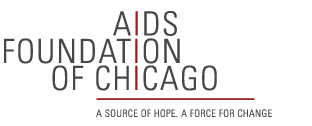Formative Evaluation of the AIDS Foundation of Chicago’s Treatment Coordinator Pilot Program
(8/30/2008 – 12/31/2009)
CURL conducted a formative evaluation of the of the AIDS Foundation of Chicago’s (AFC) Treatment Coordinator pilot project. This project occurred in two phases. For the first phase of the project, AFC integrated a new treatment coordinator position into seven pilot agencies. The goal of the position was to create a seamlessly coordinated HIV/AIDS system integrating case management and clinical services, leading to improved individual level indicators and quality of life for clients. We based our conclusions and recommendations for this phase on a variety of data sources including field observations, site visits, interviews, and one focus group.
We found overall that treatment coordination is not a “one size fits all position”. While the tasks and objectives were similar across the seven pilot agencies, the processes that treatment coordinators carried out and the barriers to implementation they faced depended on a variety of factors. The design of the pilot allowed agencies to implement the treatment coordinator position in response to the unique factors present in their organization, while still providing strong enough direction so that commonalities developed.
In the second phase of the pilot, AFC chose two of the larger pilot agencies that had external case management models to continue treatment coordination activities with. The goal of the second phase evaluation was to gain a better understanding of the process of communication between treatment coordinators and external medical case managers and medical providers. To meet the objectives of the evaluation, data were collected from treatment coordinator interviews, case manager interviews, provider surveys, and treatment coordinator daily work logs. Qualitative analysis was performed on all interview and survey data and both quantitative and qualitative analysis was performed on work log data.
The data demonstrated that external case managers and medical providers both see treatment coordinators as an essential part of the medical case management system because they facilitate the flow of communication between these two groups, leading to more consistent, timely, and accurate information with which they can act.
Research Team:
C. George, CURL
D. Watson, CURL
J. Orwat, School of Social Work
Community Partner:
